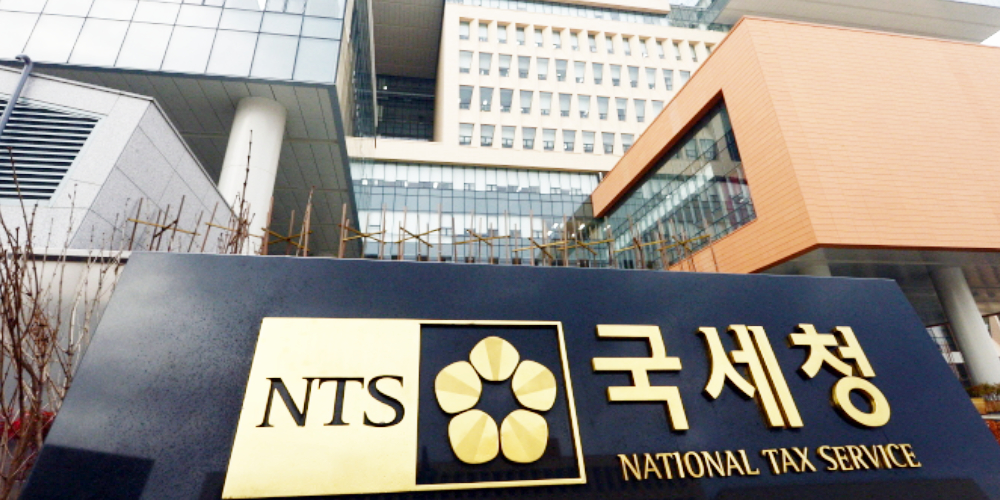Government Confirms Crypto Profits Not Taxable in South Korea

South Korea has confirmed that income tax cannot be levied on individual investors’ profits from crypto transactions under the current tax law. The government, however, is reviewing international trends and the approaches of major countries to crypto taxation in an effort to amend the existing Korean tax law to include cryptocurrency.
Also read: Regulatory Roundup – China Blockchain ETF, France New Crypto Rules, Tokens Like Money in Russia
Crypto Gains Not Subject to Taxation
The South Korean Ministry of Economy and Finance, which oversees the country’s economic policy, has stated officially that individual investors’ crypto trading profits cannot be taxed under the current tax law. Not all capital gains from financial investments are subject to taxation in South Korea, and taxes cannot be imposed on income from activities that are not explicitly defined under the tax law. Since the term “virtual currency,” or any other term it is known by, is not included anywhere in the tax law, its transactions cannot be taxed. The ministry clarified on Dec. 30:
Profits from individual virtual asset transactions are not listed income and are not taxable.

Amendments Are Being Discussed
While individuals’ crypto profits are currently tax-free in South Korea, the Ministry of Economy and Finance has been pushing to amend the tax law so they can be taxed. An official of the ministry said that discussions have already been taking place, adding that the revised bill is expected to be drawn up by the first half of 2020.
However, some major decisions must be made before the tax law can be amended. They include a precise definition of crypto assets, whether profits should be categorized as capital gains, and how the government plans to obtain trading records from crypto exchanges to accurately levy taxes. Emphasizing that cryptocurrency would need legal status before it can be added to the law, the ministry elaborated:
We are preparing a taxation plan for virtual assets by comprehensively reviewing the taxation of major countries, consistency with accounting standards, and trends in international discussions to prevent money laundering.

National Tax Service Targets Foreign Traders Using Domestic Crypto Exchanges
While domestic crypto transactions are not taxed, the country’s National Tax Service (NTS) has imposed 80.3 billion won ($69.5 million) in withholding tax on trades conducted by foreign customers of Bithumb Korea, one of the largest crypto exchanges in the country.
“Bithumb can pay [the NTS] 80.3 billion won and afterwards collect the amount from its foreign clients, but practically it’s impossible,” Kim Woo-cheol, a tax professor at the University of Seoul, was quoted by Korea Joongang Daily as saying. Bithumb reportedly has not been withholding taxes from its foreign customers and is preparing to file a lawsuit against the NTS over a “groundless” tax imposed on the company, local media reported Sunday.

The Issue of Categorizing Crypto Profits as Capital Gains
The NTS has categorized foreign traders’ crypto gains as miscellaneous income — the category which includes irregular income such as rewards or lottery winnings, Korea Joongang Daily detailed. In contrast, earnings from real estate or stock trading are categorized as capital gains. Noting that “Capital gains tax is collected for every deal, but tax for miscellaneous income is collected once each year,” the publication asserted:
Putting income from cryptocurrency trades under capital gains would have required the government to receive every trading record from domestic exchanges.
Ahn Chang-nam, a tax professor at Kangnam University, believes that it is “realistically difficult” for the government to know about every crypto transaction. “It seems like the NTS took a practical approach in categorizing gains from crypto asset trading as miscellaneous assets,” the professor opined.
What do you think of South Korea’s approach to crypto taxation? Let us know in the comments section below.
Disclaimer: This article is for informational purposes only. It is not an offer or solicitation of an offer to buy or sell, or a recommendation, endorsement, or sponsorship of any products, services, or companies. Bitcoin.com does not provide investment, tax, legal, or accounting advice. Neither the company nor the author is responsible, directly or indirectly, for any damage or loss caused or alleged to be caused by or in connection with the use of or reliance on any content, goods or services mentioned in this article.
Images courtesy of Shutterstock and the Korean government.
Did you know you can buy and sell BCH privately using our noncustodial, peer-to-peer Local Bitcoin Cash trading platform? The local.Bitcoin.com marketplace has thousands of participants from all around the world trading BCH right now. And if you need a bitcoin wallet to securely store your coins, you can download one from us here.
The post Government Confirms Crypto Profits Not Taxable in South Korea appeared first on Bitcoin News.

Post a Comment
Post a Comment